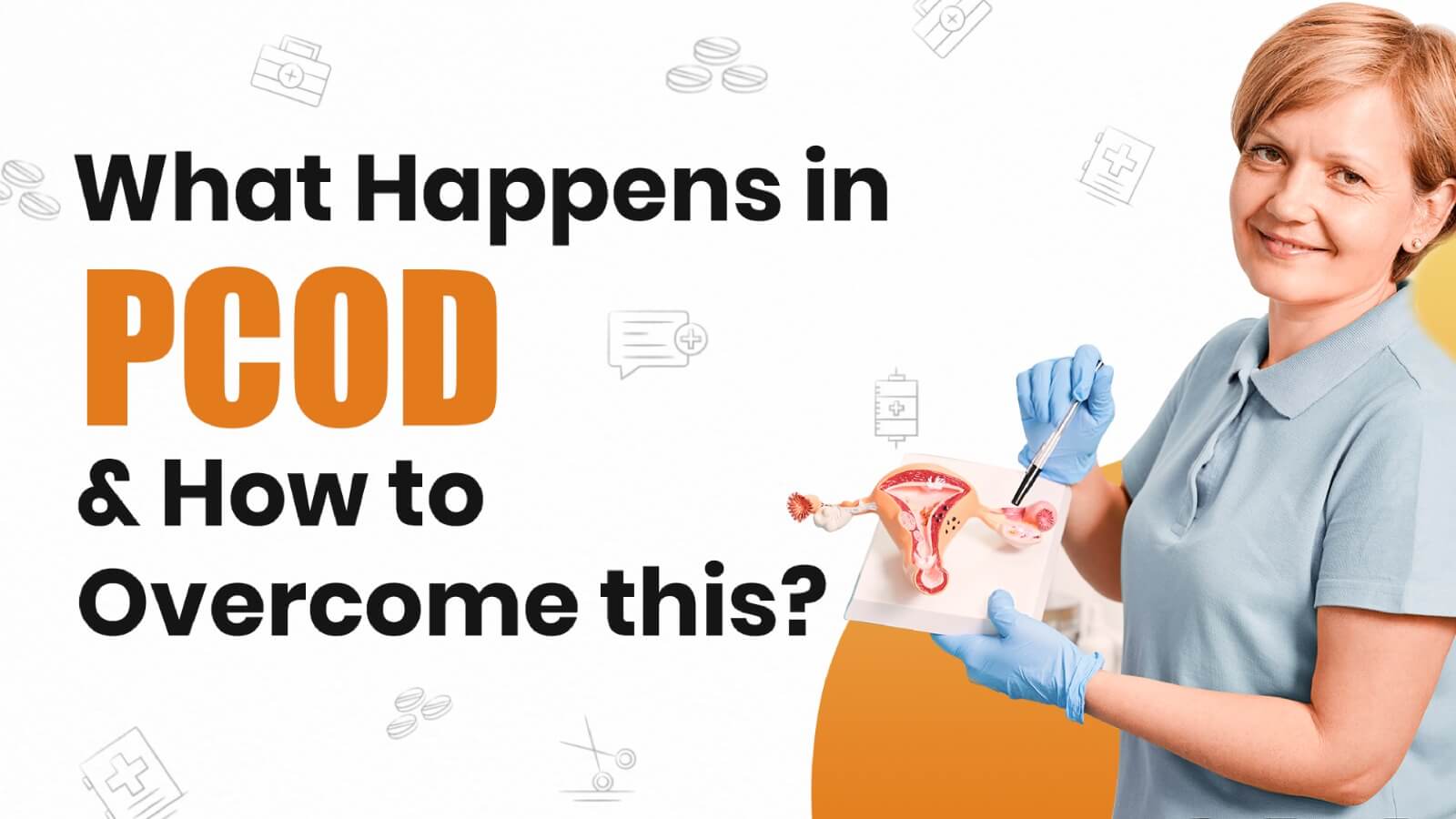

What Happens in PCOD & How to Overcome this?
According to the Centers for Disease Control and Prevention, More than half of women with PCOS develop type 2 diabetes by age 40.
Well, do you know what PCOD is?
Polycystic Ovary Disease fully understands its intricacies and how to overcome its hurdles. Hence, let’s dive in and understand the nuances of PCODs and bring to light some solutions.
Picture this: Hormones are like conductors who give directions to your body’s orchestra, making it run harmoniously. However, in PCODs, this harmony gets a bit off-key. There is an overproduction of androgens, male hormones produced in the ovaries thus affecting normal functioning of estrogen and progesterone. Such a hormonal disturbance results in irregular periods, ovarian cysts, acne, weight problems, and fertility challenges.
Know that you are not alone first of all. It is estimated that PCOS affects about 10% of women who can produce children. One must understand its symptoms, these include irregular periods, too much growth of hair, acne, excess weight gain, and difficulties in conceiving. Yet, all women do not experience the same symptoms or severity level.
How to Overcome PCOD?
Lifestyle changes are very crucial in fighting PCOS. It’s like fine-tuning the instruments in that hormonal orchestra. Therefore, it’s important to bring some changes into your routine and lifestyle -:
Diet: Go for a balanced diet. Eat a lot of healthy and whole foods, lean proteins, vegetables, and healthy fats, but limit your processed foods and sugars. PCOS is characterized by elevated blood sugar levels, and small, frequent meals are important for its management. So, visit now and plan your diet with Healthie4U.
Exercise: In this case, regular physical activity stands like a superhero. It maintains a healthy weight, enhances insulin sensitivity, and is believed to help in regulating your menstruation cycle.
Stress Management: Stress can worsen hormonal imbalances. Add routine yoga, meditation, or any hobby that makes you happy as a way of combating stress.
Sleep: Prioritize quality sleep. To improve this state establish a routine for bed because lack of sleep is capable of altering the normal production of certain hormones.
Medical Support: Consult a certified healthcare professional and seek personal guidance. Symptoms such as irregular periods may require medications or the use of hormonal contraceptives, while excessive hair growth may also require appropriate management. Don’t delay. Act now!
Always keep in mind that even minor variations can lead to substantial progress. Adopt a comprehensive lifestyle for PCOS management. It’s not only about treating the symptoms but making a lifestyle that promotes hormonal balance and general wellness.
Schedule your appointment with Healthie4U and take control of your life.
